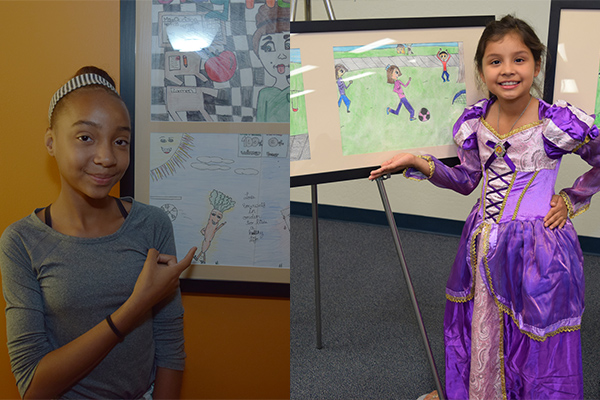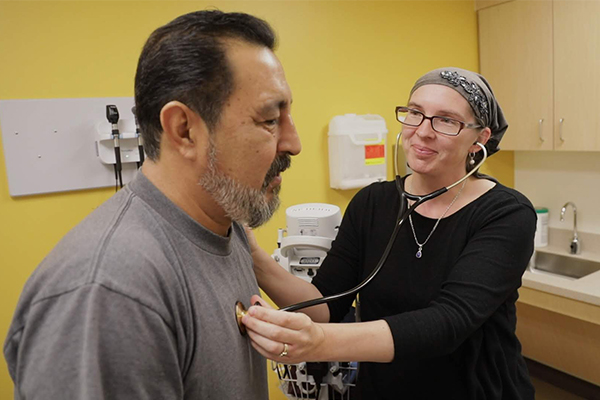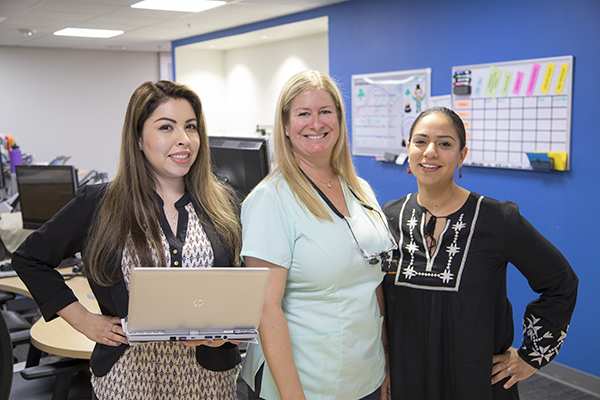January 19, 2018 | Clinics
At Mountain Park Health Center we treat our patients like family. We celebrate each other’s successes and are there as a shoulder to lean on when times get tough. Like family, we also want our patients to be comfortable in our home. That’s why it is so important to be able to communicate in our patients’ language of choice—to build trust and to give the best care possible.
One-third of our patients are Limited English Proficient, meaning English is not their primary language and they have a limited ability to speak, write and understand English. In order to provide our patients with the best services, we train bilingual employees on proper ways to communicate with our patients and their Care Team. A Limited English Proficient person may know some English, but never enough to conduct a conversation, especially a difficult one concerning medical issues.
In 2017, we launched our first in-house Medical Interpreting Training.
“It was important for me to bring this program to Mountain Park rather than continue outsourcing it out to other organizations,” Language Access Manager Rabah Radhi Alani explained. “This gave us the ability to customize the curriculum to better serve the educational needs of a larger group of eager-to-learn bilingual employees. Most importantly, it gave our patients and providers more access to better communication.”
Previously, Mountain Park depended on external partners to train our employees on basic interpreting skills and protocols. However, as we continue growing and serving more diverse communities, we realized the need to train bilingual employees in our own setting was imperative. Our 60-hour class covers essential requirements needed for our staff to convey a message with confidence and accuracy.
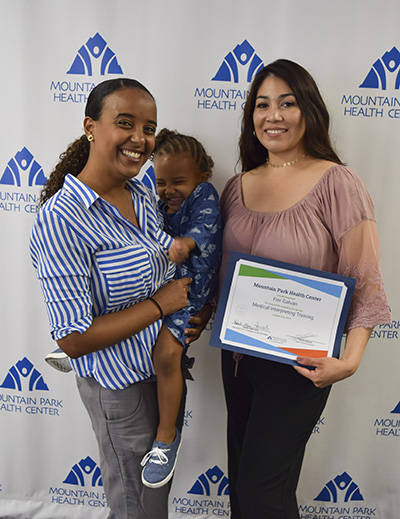
“It was important for Mountain Park to have its own program because it gave us the chance to target it toward the needs of Mountain Park patients,” Cecilia Andrade, Lead Instructor said. “Where some programs might be focused on inpatient conversation and scenarios, we crafted our classes to be more focused on primary care and outpatient situations, meeting the needs of Mountain Park and their patients.”
Thanks to the collaborative efforts of various departments and teams, the Medical Interpreting Training has been a huge success. On October 21 we celebrated our first graduating class of 17 students representing all of our clinics. Family, friends and staff members participated in this graduation ceremony.
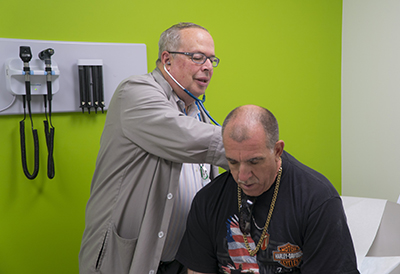
A Patient’s Point of View
Interpreters are important to our patients. With that in mind, we aim to give our patients every resource necessary under one roof, including an interpreter that is a part of their Care Team.
Filemon Escobedo, a patient at our Baseline Clinic, has been coming to see us for over 20 years. He says he loves coming to Mountain Park because we provide him with all the services he needs in one exam room.
“Although I understand and speak English, it is much easier for me to speak with someone in Spanish when it involves medical terminology,” Filemon explained. “When an interpreter is helping me understand my doctor, I feel safe and comfortable. It’s so much easier for me to talk to my doctor and explain every single symptom because I know my interpreter will make sure the doctor knows everything. I trust the interpreters.”
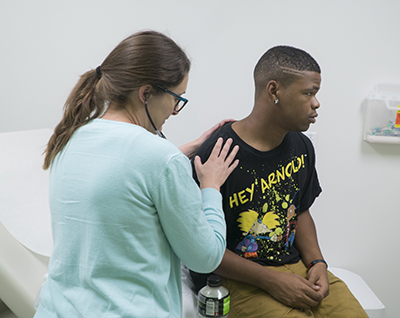
A Provider’s Point of View
Our Care Teams work hard to keep our patients’ teeth and bodies healthy. Having an interpreter right in the exam room eliminates miscommunication that can occur over the phone.
“It’s great seeing someone face-to-face because you can really see their body language and expressions, which helps in communicating,” Celine Upton, Dentist at our Baseline Clinic said. “And patients seem more satisfied after talking with our on-site interpreters as opposed to the telephone interpreter.”
It’s vital to understand what a provider is asking a patient to do in order to see improvements in their health. Our interpreters give patients the confidence needed to ask the right questions.
“Having a medical interpreter breaks down the language barrier many patients face and empowers them to make informed decisions about their health,” Leah Tekle, dentist at our Baseline Clinic added. “As the provider I can feel confident that my recommendations have been accurately conveyed to the patient.”
A Need for More Interpreters
As the only department interpreter in the pediatric department of our Maryvale Clinic, Araceli Wandachowicz appreciates the help she receives from dual-role employees.
“We are growing fast and sometimes it can be difficult to help many providers at the same time,” she said. “Now that we have our graduates working with some of the providers, we are able to convey answers clearly and concisely to both patient and doctor.”
Our Medical Interpreter Training ensures that our dual-role employees – those who are certified to interpret in addition to performing their regular job duties – are prepared to accurately convey medical information.
“Just because you are a Spanish speaker doesn’t mean you can interpret,” Lisbell Borunda, Medical Assistant Lead at our Gateway Clinic shared. “Spanish medical terminology is a world of its own. I appreciate that I learned so much from being in this program.”
Next Round is Around the Corner
We’re already gearing up for the Medical Interpreter Training’s next class. Training more bilingual employees will allow us to better serve even more Spanish speaking patients.
“The class taught me so much,” Magali Espana, Integrated Health Services Assistant at our Baseline Clinic said. “I think anyone interested should take advantage of it.”
Although Spanish is the most requested language for our interpreters, we look forward to serving patients in as many ways as we can.
For more information, please email info@mphc-az.org


